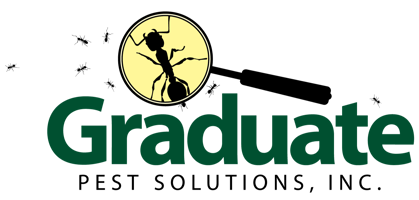When it comes to pests in Granby, Ludlow, Chicopee, and Monson, Massachusetts, there are five recurring problems we see. What are the top 5 pests we love to hate? Termites, ants, rodents, roaches, and stinging insects. Each of them poses their own special set of issues, but the thing they all have in common is that left untended, they can be harmful to your health and home. Let’s cover how to prepare for them in 2021.
Termites
Moisture attracts termites. Wood is a metaphorical magnet for termites. This is why termite infestations very commonly happen in basements and garages. Exceptionally wet weather can worsen the chances. Debris from a construction project, firewood, and mulch are all attractive food sources for termites. The main way termites can enter your home is through a small opening in the foundation. These cracks can be incredibly small and still accessible. Areas such as crawlspaces and basements provide protection and warmth termites need to thrive.
Early signs of a termite infestation include discarded termite swarmer wings, mud tubes, wood that sounds hollow when tapped on and feels soft or appears darker, or uneven or bubbled paint. Swarmer termites are commonly misidentified as flying ants.
Ants
Seeing ants around the outside of your home is a good indication that they might be trying to get inside your home. When in doubt, check the kitchen, bathroom, and basement, but in order to prevent ants in the spring, it’s best not to invite them into your home. It doesn’t take much food to satisfy an ant. Be prompt with doing dishes, cleaning up spills and crumbs, and taking out the trash. Keep pantry foods in sealed containers and try to store produce in the refrigerator.
Stopping the ants before they get in will help ensure your home stays ant-free this spring! Cut back any branches or overgrown shrubbery that may be touching the house. Seal or repair any tiny cracks where the ants could come in, and repair or replace torn window screens.
Rodents
Sometimes a single rodent will make its way into a house or structure, and the home will not be otherwise infested. However, seeing other signs of rodent activity especially in different areas is a good indication that an infestation may be occurring. Consequently, these signs can include droppings, tracks, footprints, or tail trails along dusty areas of the house. You might hear moving, scratching, or squeaking noises in the walls, and you might smell musky, stale odors caused by rodent urine and feces.
Despite the multitude of various techniques, tools and apparatuses used to eliminate rodent infestations, snap traps remain the most efficient solution. While they can be difficult to set, they are inexpensive, often reusable, and good for a quick reduction of an infesting population.
Roaches
Cockroaches are usually associated with uncleanliness, so nobody wants a home infested with them. These top 5 pests, aside from being creepy-looking crawlers, can also spread nasty pathogens and diseases.
Regularly give your home a thorough cleaning. Pay particular attention to kitchen and bathroom areas. Wipe down counters and vacuum floors frequently and don’t let dirty dishes pile up in the sink!
Store all open boxed food in sturdy containers with tight-fitting lids and avoid leaving pet food out in the open. Try storing trash in a receptacle with a lid and take it out often. Reduce moisture in the home by repairing any leaks and sealing gaps around utility pipes. Consider using a dehumidifier in areas prone to dampness, such as basements.
Stinging Insects
Stinging insects such as bees, wasps, hornets, and yellow jackets can terrorize your property and family. These painful stings can be more than just a nuisance—the NPMA reports that stinging insects send over half a million people to the hospital every year.
The best way to tackle a stinging insect infestation is prevention. The first step is removing anything that attracts wasps, which can include food scraps, compost, and garbage. Make sure your trash barrels have tight-fitting lids, and consider removing any sweet attractors around your house, such as bird feed or nectars. Repair or replace broken panels or siding, torn window screens, and other crevices. Don’t give the wasps any areas to potentially squeeze into and make a nest.
Most home improvement stores sell various wasp baits, traps, and pesticides. Use these in targeted locations around your property, and you may be able to prevent wasp nests from popping up in your personal space. Remember to always use pesticide products as directed.
Worried about one of these top 5 pests? Call us at 413-566-8222 or contact us with any questions or if you are experiencing a pest problem. We have the knowledge and the services to correct your infestation. Ask Graduate about our preventative annual plans to keep your home pest-free year-round!
YOU MAY ALSO LIKE
These related articles

